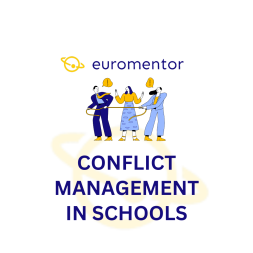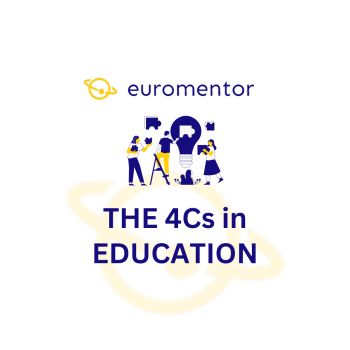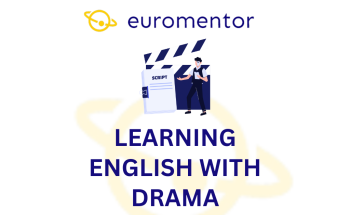
Conflict Management Solutions in Schools: A Teacher's Guide (Barcelona, Spain)
In today's diverse and dynamic classrooms, conflicts can be inevitable, but their proper handling is crucial for maintaining a positive and conducive learning atmosphere. This course equips educators with a range of proven strategies and techniques to de-escalate, address, and resolve conflicts, promoting a harmonious and supportive learning environment for both students and educators alike.
Description
- Conflict Management Solutions in Schools: A Teacher's Guide is designed to provide educators with practical strategies for effectively managing and resolving conflicts within educational settings. This course equips teachers with essential tools to create a more harmonious and productive learning atmosphere, fostering a positive school culture where students can thrive. Throughout the course, participants will gain a deep understanding of the various types of conflicts that can arise within educational settings, their root causes, and the impact they can have on students' well-being and academic performance.
- You will also explore a wide range of conflict resolution strategies tailored to the school context. These strategies encompass proactive measures for preventing conflicts as well as effective interventions for addressing conflicts when they do occur. The course emphasises active listening, empathy, and constructive dialogue as essential skills for conflict resolution. Effective communication is a central theme of the course, with a focus on improving communication among students, teachers, and other stakeholders.
- You will learn about mediation and peer conflict resolution programs that can be implemented within your schools, empowering students to take an active role in resolving conflicts and promoting empathy and cooperation. Real-life case studies and conflict scenarios are presented to illustrate the application of conflict management techniques in school settings, allowing participants to develop their problem-solving skills through practical examples.
- Course Category: Wellbeing, Inclusion and Classroom Management
- Related Courses:Drama as a Tool for Inclusion: Promoting Diversity, Tolerance, and Self-Expression in Schools; Positive Education: Happy Schools with Positive Communication and Social-Emotional Learning
- You can also directly contact us by email: info@euromentor.es
Learning objectives
- Understanding Conflict Dynamics: Participants will gain a deep understanding of the underlying causes and dynamics of conflicts that commonly arise in school settings.
- Effective Communication Skills: Educators will develop enhanced communication skills, including active listening, nonviolent communication, and constructive feedback techniques.
- Proactive Conflict Resolution: Participants will learn strategies to proactively manage and prevent conflicts from escalating.
- Peer Mediation and Restorative Practices: Teachers will explore peer mediation techniques and restorative justice practices, empowering them to guide students in resolving their conflicts collaboratively.
- Managing Authority Conflicts: Educators will gain tools to effectively handle conflicts related to teacher-student authority dynamics.
- Conflict Resolution in Colleague Interactions: Participants will be equipped to handle conflicts that may arise among colleagues, fostering a cooperative and positive working environment within the school.
- Cultivating a Nurturing Learning Environment: The course will empower educators to create a nurturing learning environment that promotes academic growth and emotional well-being
- Promoting Empathy and Understanding: By understanding the perspectives of all parties involved in conflicts, teachers will be able to foster empathy and promote a culture of understanding and respect within the classroom.
Methodology & assessment
Interactive Workshops: The course employs a hands-on approach, featuring interactive workshops, group discussions, and collaborative activities.
Peer Learning: Participants engage in peer-to-peer learning, benefiting from the diverse backgrounds and experiences of their fellow educators.
Practical Application: The training emphasises the practical application of concepts learned.
Assessment:
Formative Assessment: Continuous assessment methods are employed throughout the course, including quizzes, group presentations, and reflective journals.
Final Project: Participants are required to develop a final project that incorporates the knowledge and skills gained during the course.
Course Evaluation: At the end of the course, participants are asked to complete an evaluation form, offering insights into the effectiveness of the training program.
Certification details
Our courses are in line with the Erasmus+ Quality standards for courses under Key Action 1 (learning mobility of individuals)
Participants are required to attend a minimum of 80% of the course sessions. Additionally, active engagement and participation in group discussions and practical activities are encouraged to enhance the learning experience.
Upon the successful completion of the training course, participants will obtain;
- Certificate of Attendance: includes the name of the participant and the trainer, the location, the dates, learning hours and competences acquired.
- Learning Agreement(s)
- Europass Mobility Document(s)
Pricing, packages and other information
-
Price:400Euro
Additional information
-
Language:English
-
Target audience ISCED:Primary education (ISCED 1)Lower secondary education (ISCED 2)Upper secondary education (ISCED 3)
-
Target audience type:TeacherHead Teacher / PrincipalTeacher Educator
-
Learning time:25 hours or more
Past sessions
More courses by this organiser

The 4Cs in Education: Creativity, Collaboration, Communication and Critical Thinking (Barcelona, Spain)

Drama-Based English Language Course for Teachers and School Staff (Barcelona, Spain)


